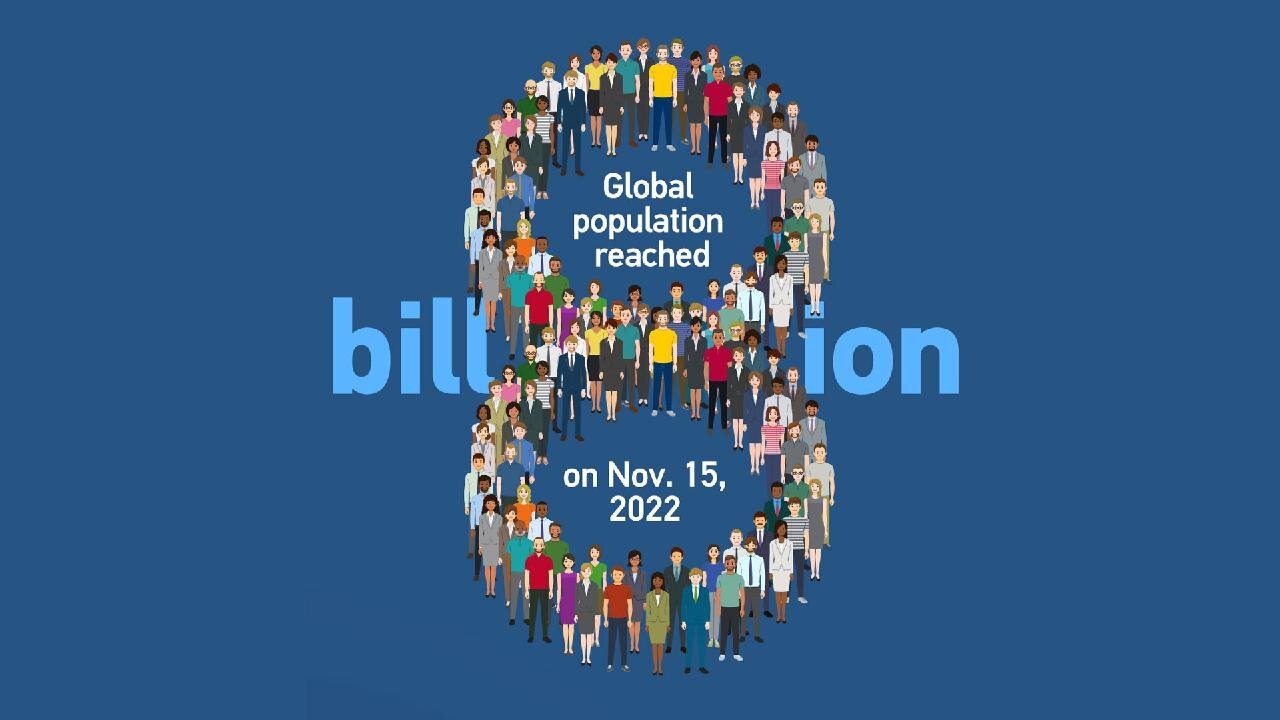World Population Day: unleashing the power of gender equality

TEHRAN - World Population Day, which seeks to focus attention on the urgency and importance of population issues, was established by the then-Governing Council of the United Nations Development Program in 1989, an outgrowth of the interest generated by the Day of Five Billion, which was observed on July 11, 1987.
By resolution 45/216 of December 1990, the United Nations General Assembly decided to continue observing World Population Day to enhance awareness of population issues, including their relations to the environment and development.
The Day was first marked on July 11, 1990, in more than 90 countries. Since then, a number of a number of UNFPA country offices and other organizations and institutions commemorate World Population Day, in partnership with governments and civil society.
The 2023 Theme is “Unleashing the power of gender equality: Uplifting the voices of women and girls to unlock our world’s infinite possibilities.”
The recent past has seen enormous changes in fertility rates and life expectancy. In the early 1970s, women had on average 4.5 children each; by 2015, total fertility for the world had fallen to below 2.5 children per woman. Meanwhile, average global lifespans have risen, from 64.6 years in the early 1990s to 72.6 years in 2019.
In addition, the world is seeing high levels of urbanization and accelerating migration. 2007 was the first year in which more people lived in urban areas than in rural areas, and by 2050 about 66 percent of the world's population will be living in cities.
Iran’s population growth policies
Considering the negative consequences of population decline in the lives of families and the negative effects of aging and population aging in the coming years, necessary measures should be taken to promote the culture and improve people's attitudes towards having children.
President Ebrahim Raisi has urged all responsible bodies and organizations to adopt national policies in line with the goal of population growth.
All the institutions and organizations of the country are obliged to prepare their plans and programs within the framework of the population growth policy and follow up on their implementation seriously, he said, IRIB reported.
He referred to "population" as one of the important and key points in the 7th national development plan (2021-2026).
The president considered promoting the culture of marriage and reducing divorce and helping to solve the problem of infertility as some of the effective factors in increasing the population, which should be the priority of attention and action of all institutions.
In November last year, Raisi declared the “Law on Family and Youth Support" to the Judiciary for a 7-year implementation.
It was also declared to other ministries including the Health Ministry, the Interior Ministry, the Education Ministry, as well as the Vice Presidency for Women and Family Affairs.
The plan stipulates health insurance for infertile couples, providing services and facilities to working women, providing health and nutrition support packages to mothers and children, educational opportunities for student mothers, providing livelihood support to families, and ongoing medical services to pregnant women.
The national budget bill for the current [Iranian calendar] calendar year, which began on March 21, has proposed 120 trillion rials (nearly $480 million) to implement childbearing and family support plans in the country.
Also, as per the Law, children, and family allowance of all different groups of employees in the relevant institutions, the Armed Forces, the Ministry of Intelligence, the Atomic Energy Organization of Iran, and also faculty members of universities and research institutions, judges, and retirees will increase by 50 to 100 percent.
MG
Leave a Comment